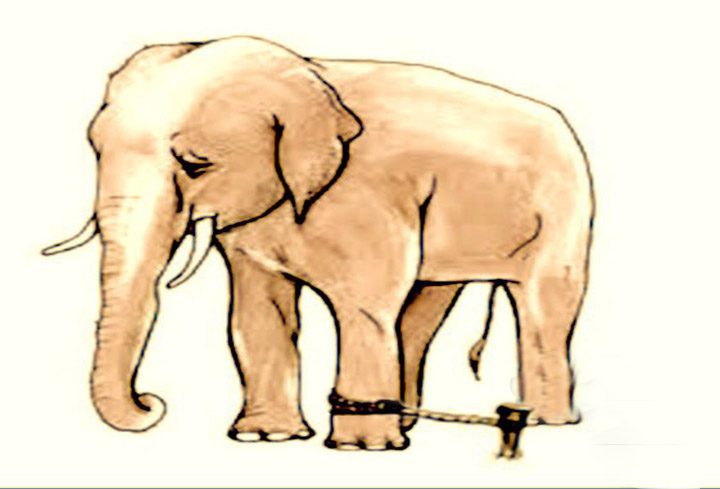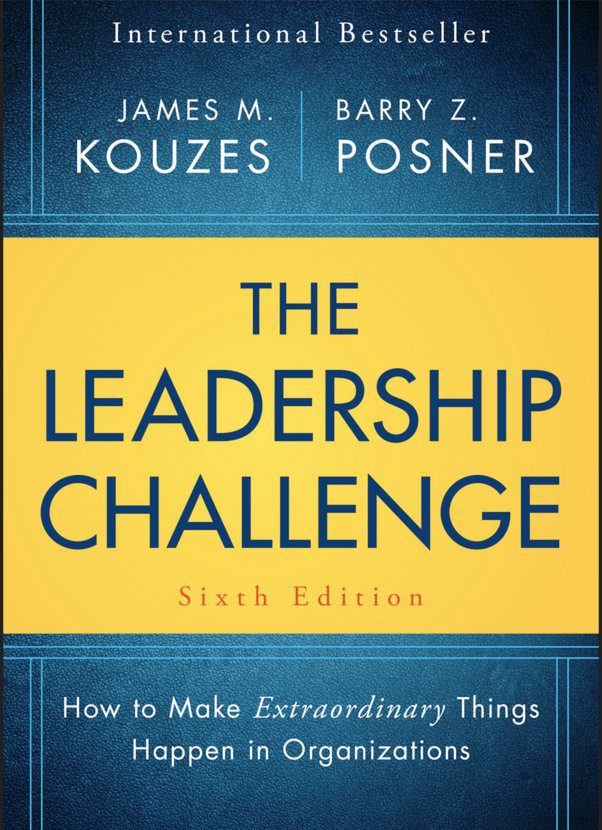Until you make the unconscious conscious, it will direct your life and you will call it fate.― C.G. Jung
There is a story about a man who was passing the elephants, he suddenly stopped, confused by the fact that these huge creatures were being held by only a small rope tied to their front leg. No chains, no cages. It was obvious that the elephants could, at anytime, break away from their bonds but for some reason, they did not.
He saw a trainer nearby and asked why these animals just stood there and made no attempt to get away. “Well,” trainer said, “when they are very young and much smaller we use the same size rope to tie them and, at that age, it’s enough to hold them. As they grow up, they are conditioned to believe they cannot break away. They believe the rope can still hold them, so they never try to break free.
Elephants never forget
The man was amazed. These animals could at any time break free from their bonds but because they believed they couldn’t, they were stuck right where they were.
The elephant is held back not by the rope but by its belief system
Just like the elephant in the above story, we hang on to self-limiting beliefs. We stay stuck in destructive relationships because they are who we always have known, we stay in toxic work environments because we need to pay our bills, we hang around the wrong crowd because we don’t want to be lonely Just like the rope in the elephant’s feet, you have the power to release yourself from the captivity of self-limiting beliefs, toxic work environment, destructive habits and other non-productive attitudes.
In the Four Agreements: A Practical Guide to Personal Freedom, Don Miguel Ruiz shares the following insights on the Domestication of the Human Mind, which explains why we act the way we do just like the elephant in the above story:
The Agreement
As children, we didn’t have the opportunity to choose our beliefs, but we agreed with the information that was passed to us from the dream of the planet via other humans. The only way to store information is by agreement. The outside dream may hook our attention, but if we don’t agree, we don’t store that information. As soon as we agree, we believe it, and this is called faith. To have faith is to believe unconditionally.
That’s how we learn as children. Children believe everything adults say. We agree with them, and our faith is so strong that the belief system controls our whole dream of life. We didn’t choose these beliefs, and we may have rebelled against them, but we were not strong enough to win the rebellion. The result is surrender to the beliefs with our agreement.
The Domestication of the Human
Through this domestication we learn how to live and how to dream. In human domestication, the information from the outside dream is conveyed to the inside dream, creating our whole belief system. First the child is taught the names of things: Mom, Dad, milk, bottle. Day by day, at home, at school, at church, and from television, we are told how to live, what kind of behavior is acceptable. The outside dream teaches us how to be a human. We have a whole concept of what a “woman” is and what a “man” is. And we also learn to judge: We judge ourselves, judge other people, judge the neighbors.
Children are domesticated the same way that we domesticate a dog, a cat, or any other animal. In order to teach a dog we punish the dog and we give it rewards. We train our children whom we love so much the same way that we train any domesticated animal: with a system of punishment and reward. We are told, “You’re a good boy,” or “You’re a good girl,” when we do what Mom and Dad want us to do. When we don’t, we are “a bad girl” or “a bad boy.”
When we went against the rules we were punished; when we went along with the rules we got a reward. We were punished many times a day, and we were also rewarded many times a day. Soon we became afraid of being punished and also afraid of not receiving the reward. The reward is the attention that we got from our parents or from other people like siblings, teachers, and friends. We soon develop a need to hook other people’s attention in order to get the reward
All our normal tendencies are lost in the process of domestication. And when we are old enough for our mind to understand, we learn the word no. The adults say, “Don’t do this and don’t do that.” We rebel and say, “No!” We rebel because we are defending our freedom. We want to be ourselves, but we are very little, and the adults are big and strong. After a certain time we are afraid because we know that every time we do something wrong we are going to be punished
The domestication is so strong that at a certain point in our lives we no longer need anyone to domesticate us. We don’t need Mom or Dad, the school or the church to domesticate us. We are so well trained that we are our own domesticator. We are an autodomesticated animal. We can now domesticate ourselves according to the same belief system we were given, and using the same system of punishment and reward. We punish ourselves when we don’t follow the rules according to our belief system; we reward ourselves when we are the “good boy” or “good girl.”
Just like the Elephant, we have been tamed from years of programming and domestication in childhood. Just like the elephant tried initially to pull away from the rope while we were also young we questioned/rebelled against some of this programming but we were scolded and we stopped questioning. The programming is still ongoing through the Media from Cable Television to Social Media.
The key is to unlearn some of the these self limiting beliefs/behaviours and release our self from this shackle/rope.
Learn, Unlearn and Relearn
All the Best in your quest to get better. Don’t Settle: Live with Passion.



2 Comments
Pingback: Someday, I’ll… – Lanre Dahunsi
Pingback: The Enemy called FEAR. – Lanre Dahunsi